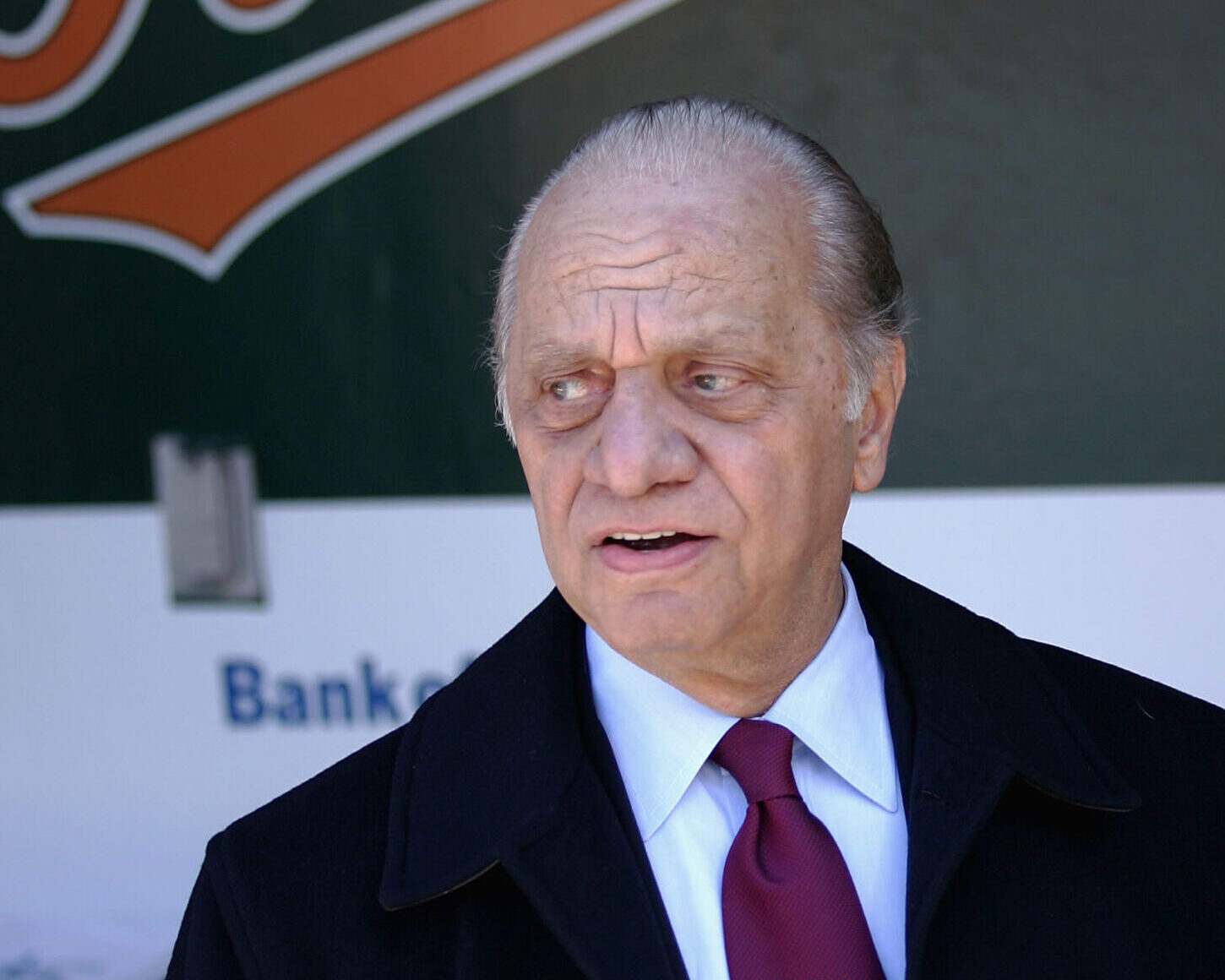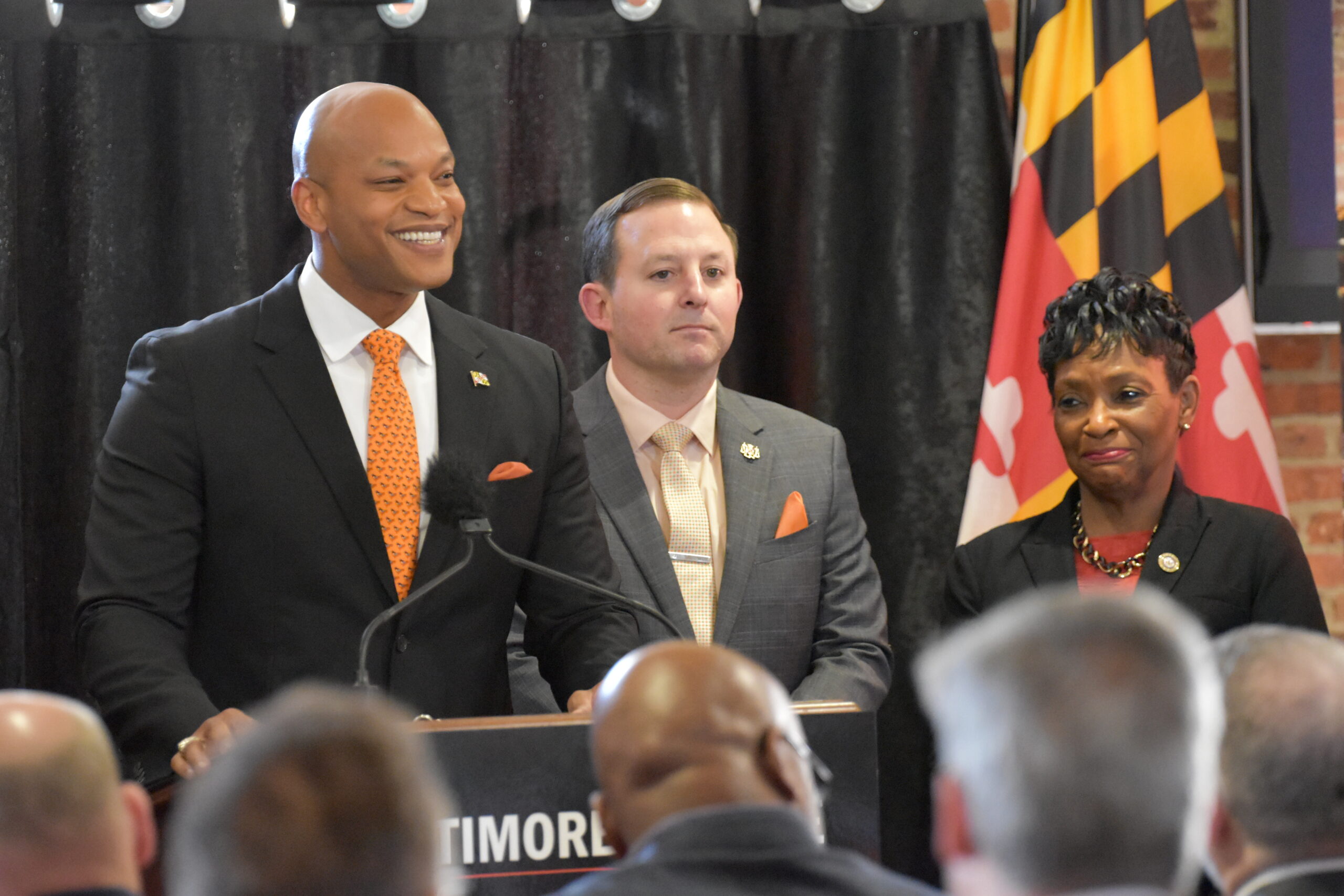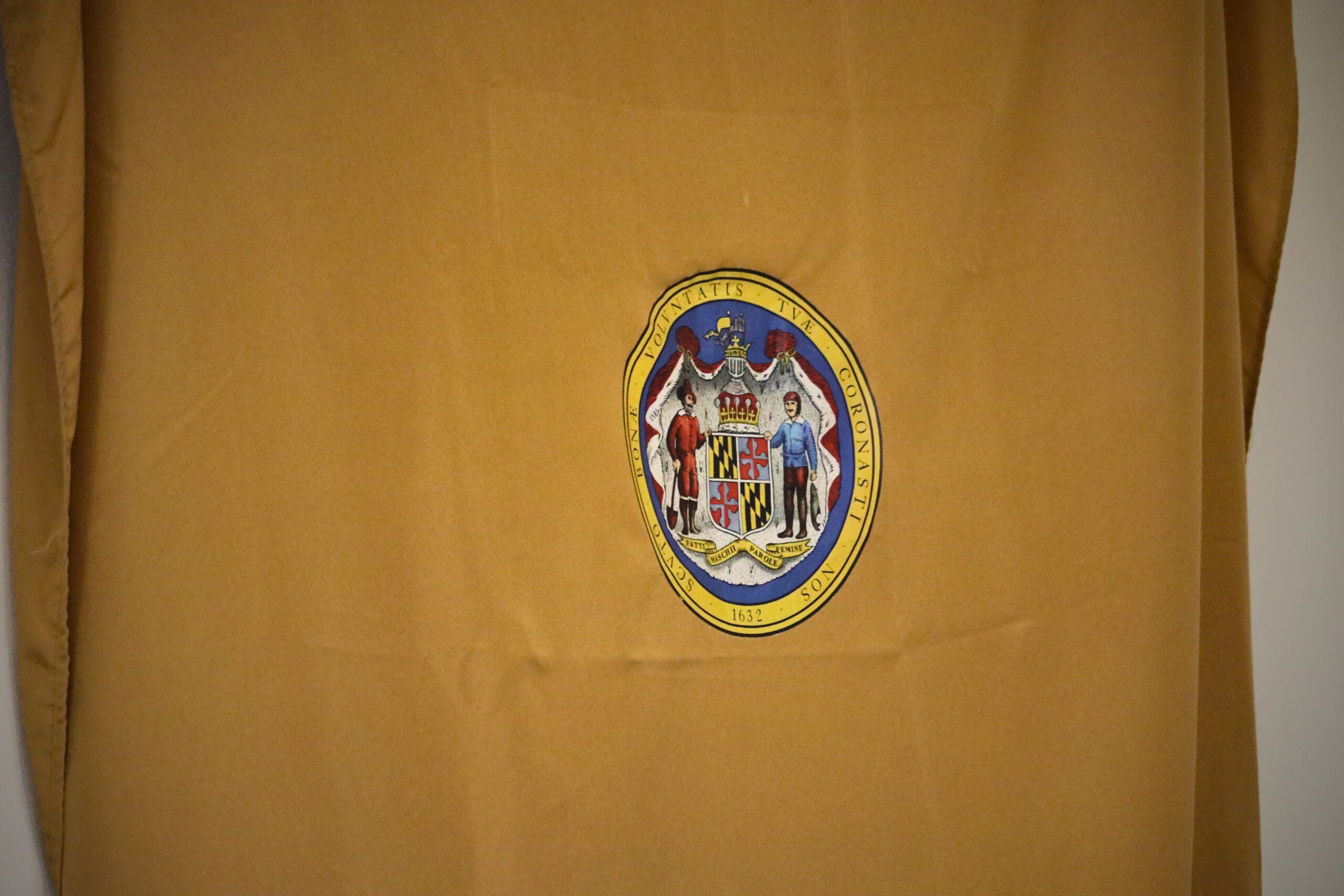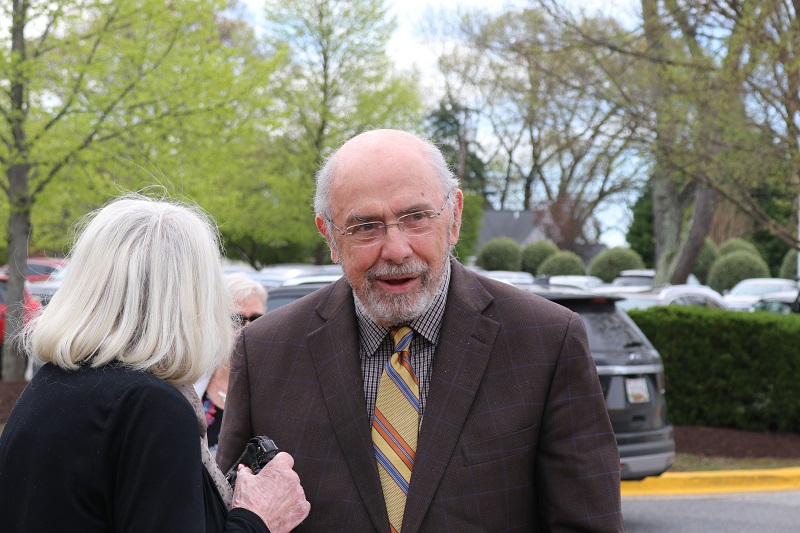John Rydell: Associates remember Peter Angelos

Peter G. Angelos, longtime owner of the Baltimore Orioles who died Saturday after a long illness at the age of 94, was remembered by friends, colleagues and associates for his many contributions to the city, its civic and political life. A powerful lawyer, Angelos made his fortune representing asbestos and tobacco victims.
His early career included serving one term on the Baltimore City Council, In 1967, he ran for mayor and was defeated by Thomas D’Alesandro III. Angelos would then turn his attention to representing thousands of asbestos victims. As he got richer, he became a powerful player and donor in state and national Democratic politics.
“He’s in a league with very few people as a steward of Baltimore City and someone who cared deeply about the future of Baltimore,” said John Pica, a former state senator and lawyer who worked for Angelos’ law firm.
Longtime Orioles catcher and broadcaster Rick Dempsey, who was named 1983 World Series Most Valuable Player, says, “Peter wanted to win, there’s no doubt about that.”
Dempsey says Angelos hired him to become part of the Orioles broadcast team. Before that, he served as an Orioles coach. “I interviewed four times to become the manager and was offered the job twice and later rescinded the offer.” But Dempsey says he has no hard feelings.
“When he was younger, he used to box, and it takes a lot of confidence to do that sort of thing. That was his sport, and his character carried over into his law practice. He was a union guy, he was very smart and tough and not someone who anyone wanted to mess with,” Dempsey said.
Angelos was one of only two baseball owners to vote against using substitute players to replace Major League players who went on strike in August, 1994.
Retired Baltimore Sun sports columnist Jim Henneman, who covered the Orioles, says: “His biggest contribution locally was when he stood up to the owners and players who were union people. He was against the strike, but he was adamant that he would not hire replacement players and put Cal Ripken’s consecutive game streak in jeopardy. That may not have been the biggest reason, but he was not going to use substitute players to start the 1995 season.”
Alan M. Rifkin, a Baltimore attorney who represents the Orioles and the Mid-Atlantic Sports Network (MASN), says “Peter was a giant of a man who stood up to those who most needed his strength of conviction and courageous legal skills to find justice.
“In my mind he single handily saved the Orioles franchise for Baltimore. Not only did he step up and buy the team during the Eli Jacobs bankruptcy proceeding thus ensuring local ownership, but he fought long and hard to make the best out of the implications of MLB placing another baseball team into the region,” said Rifkin. “And, he was one of the most generous and philanthropic people in the city and state. Without fanfare, he quietly supported countless civic and cultural institutions. Not for the acclaim. He didn’t want or need that. But for the fact that it made our communities better.”
In late 1993, Angelos assembled a group of prominent local investors, which included best-selling author Tom Clancy, tennis great Pam Shriver, and ABC Sports broadcaster Jim McKay.
On Opening Day of the 1994 season, Angelos threw the ceremonial first pitch before the game. He told reporters that day “We’re very pleased that we have Maryland ownership of the ball club, and of course with the fan support that this team gets, we’re also delighted that we can improve the team to the extent that we have.”
Then-Gov. William Donald Schaefer (D), who joined Angelos on the field that day, told reporters: “When he told me he was going to buy the club, I said you can’t, it’s too late. He [Angelos] said, ‘I’m going to buy the club, don’t worry about it.’ And I said ‘why do you want to do that? You’ve got everything in the world.’ And he said ‘local ownership. We should have somebody from Baltimore own the team.”
“People forget, but he had the highest payroll in the game at the time. It wasn’t enough to win everything but it wasn’t for the lack of spending money.” He never got to the big dance [World Series] but it certainly wasn’t for a lack of effort,” Henneman said.
Longtime Baltimore sportscaster Tom Davis said, “Peter Angelos made money as a litigator and he reinvested that money in Baltimore to make sure that the Orioles stayed here forever. He took it upon himself to spend and build a winner. He didn’t always get the end result on the playing field, but the Orioles became the first team in 1998 to have a $100 million payroll.”
Sports broadcaster and historian Phil Wood recalled: “When he bought the club, he was motivated by the fact that he was a Baltimorean. You had other people bidding for the team, who were not from Baltimore, there was this sense that he was somehow saving the team from leaving, but of course, the Orioles had a long term lease that prevented them from leaving. He didn’t really save the team.”
Wood added: Angelos “fell into the same trap that many wealthy people do that buy professional sports teams. It didn’t take him long to look into the mirror and see a sportsman. I don’t think there was a real payoff. I think his legacy will be as a guy who meant well but never could win the big one.”




 Creative Commons Attribution
Creative Commons Attribution